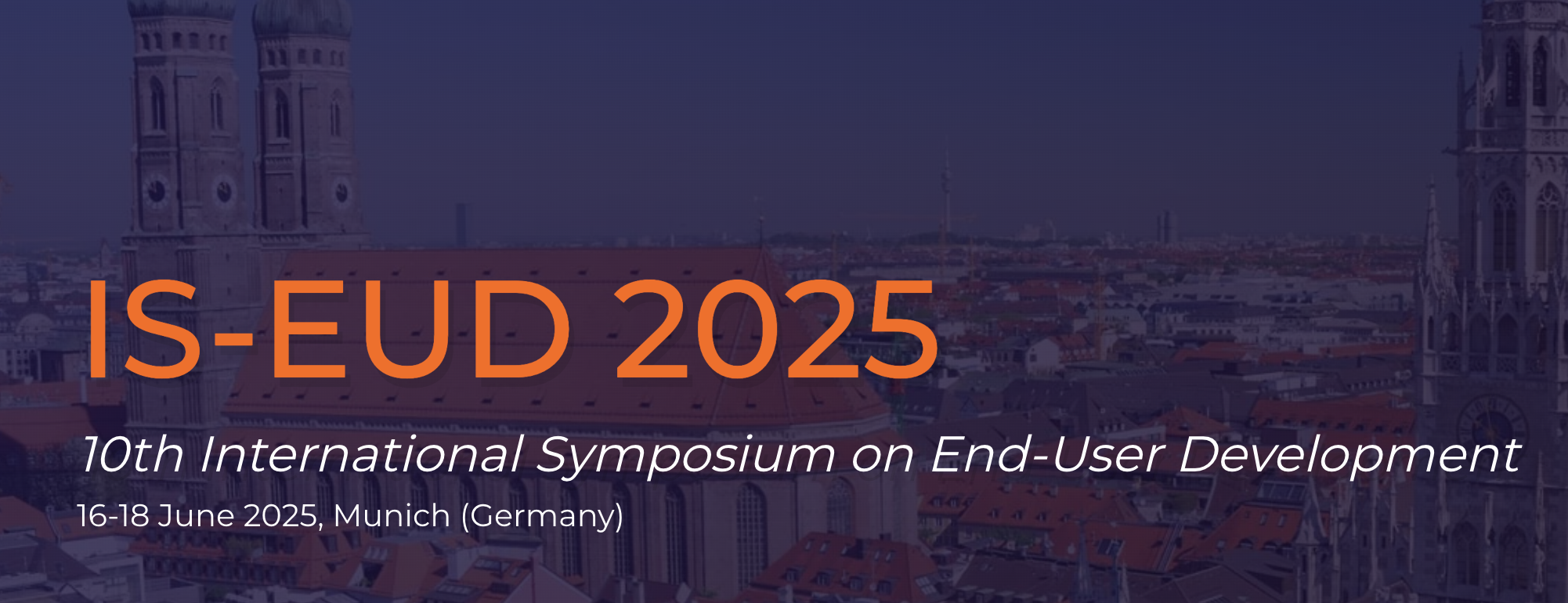Participation at IS-EUD 2025
The e-Lite group will be represented at the 10th International Symposium on End-User Development (IS-EUD 2025), taking place from June 16 to 18 in Munich, Germany.
Alberto and Tommaso will attend the conference in person to present two full papers on digital wellbeing and generative AI for design. Our contributions explore how end-user development can empower people to shape their own digital experiences—whether by creating personalized self-control tools or by collaborating with AI in creative workflows.
If you're around Munich for the conference, come find us—we’d love to chat!

Evaluating Visual Prompting Modalities for Generative AI-Assisted UI Design
The paper "Evaluating Visual Prompting Modalities for Generative AI-Assisted UI Design" will be presented by Tommaso on Tuesday, May 17 at 14:00 (Session 2: Democratizing AI and Programming).
This study investigates how different visual prompting techniques—freehand sketching and semantic-colored drawings—can guide AI in generating user interface mockups. Thirteen design practitioners evaluated both approaches in terms of intuitiveness, expressiveness, and fidelity of the resulting UI artifacts.
The findings reveal a trade-off: sketching is more intuitive and expressive for ideation, while semantic prompting yields higher fidelity and quality outputs. We discuss implications for hybrid prompting strategies that adapt to different stages of the creative process and offer design practitioners a more balanced framework for collaborating with generative AI systems.
You can read the paper by following the links at the end of this news!
Empowering End Users to Design for Their Digital Self-Control
The paper "Empowering End Users to Design for Their Digital Self-Control" will be presented by Alberto on Wednesday, May 18 at 11:00 (Session 3: AI for End-User Empowerment: Personalization and Wellbeing).
In this work, we address the limitations of current Digital Self-Control Tools (DSCTs), which often treat users as passive recipients of rigid intervention strategies. Instead, we explore how end-user development (EUD) can allow individuals to design and customize their own digital wellbeing interventions.
We propose an Event-Condition-Action (ECA) framework tailored to the DSCT domain and evaluate a mobile interface for rule composition. A usability study with 11 participants revealed high usability (average SUS score of 82.5) and strong interest in personalizing self-control strategies. The results suggest that EUD can play a crucial role in making DSCTs more flexible, engaging, and sustainable.
You can read the paper by following the links at the end of this news!
Additional information:
- Evaluating Visual Prompting Modalities for Generative AI-Assisted UI Design by Tommaso Calò and Luigi De Russis
- Empowering End Users to Design for Their Digital Self-Control by Alberto Monge Roffarello and Luigi De Russis
- Full conference program
